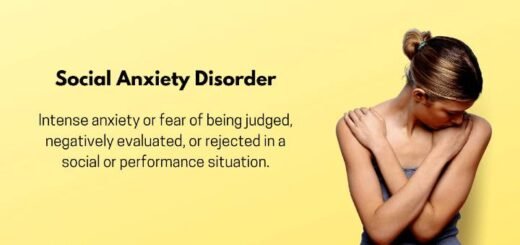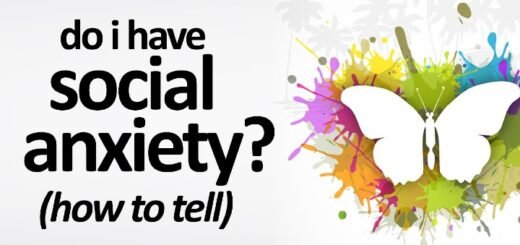Conquering Social Anxiety: Effective Exposure Techniques
Social anxiety can significantly impact daily life, making routine interactions daunting for many individuals. In New Zealand, the journey to overcoming social anxiety often begins with practical exposure strategies that involve gradual steps toward increasing social confidence. These strategies empower individuals to face their fears in manageable increments, ultimately fostering a greater sense of assurance in everyday situations.
Incorporating social confidence strategies into daily routines can yield transformative results. By engaging in structured exposure exercises, individuals can build resilience and reduce anxiety over time. For those seeking tailored guidance, resources such as this website offer valuable insights into effective techniques for boosting confidence in social settings throughout New Zealand. Embracing these gradual strategies can lead to a more fulfilling and connected life, free from the constraints of social anxiety.
Understanding Social Anxiety and Its Impact
Social anxiety is a common mental health issue that affects many individuals, causing fear and avoidance of social situations. For New Zealanders, this can manifest in various everyday scenarios, from speaking at a community gathering to simply ordering a coffee. Understanding the root causes of social anxiety can be the first step toward addressing it. Factors such as genetics, environment, and past experiences can contribute to heightened feelings of self-consciousness.
The impact of social anxiety can be far-reaching. It can hinder personal relationships, professional opportunities, and overall quality of life. Individuals may find themselves isolating from friends and family, which can exacerbate feelings of loneliness and depression. Recognising these patterns is crucial for anyone looking to implement practical exposure strategies.
To overcome social anxiety, it’s essential to develop a plan that includes gradual exposure to feared situations. This approach can help individuals build their confidence over time, allowing them to face challenges without overwhelming distress. The New Zealand Social Anxiety website offers a wealth of resources for those seeking to understand and combat social anxiety effectively.
Setting Realistic Goals for Exposure
When tackling social anxiety, it’s crucial to set realistic and achievable goals. Start small. For instance, if the thought of attending a large gathering feels daunting, consider beginning with a smaller group of friends. This method allows for gradual exposure to social situations without the pressure of overwhelming circumstances.
Goal-setting should be specific, measurable, achievable, relevant, and time-bound (SMART). For example, aim to attend one small social event per week. Keep a journal to track your progress, noting feelings before and after each event. This practice not only provides insight into your anxiety triggers but also highlights improvement over time.
Additionally, consider incorporating social confidence strategies into your goals. This could involve practising conversation starters or engaging in role-play with a trusted friend. By utilising these strategies in a safe environment, individuals can prepare themselves for real-life interactions.
Gradual Exposure Techniques
Gradual exposure techniques are essential for overcoming social anxiety. These techniques involve slowly and systematically facing feared situations, which helps in desensitising the anxiety response. Start by identifying situations that provoke anxiety and then rank them from least to most anxiety-inducing.
For example, if speaking to a stranger is a source of anxiety, begin with a simple smile or nod. Next, progress to making small talk with a cashier or asking for directions. Each successful interaction reinforces positive experiences and diminishes fear.
In New Zealand, community events can provide excellent opportunities for gradual exposure. Local markets, festivals, or community classes can be ideal settings to practice social interactions in a low-pressure environment. Engaging with others in these relaxed settings can help build confidence and social skills.
Remember, it’s essential to celebrate small victories along the way. Each step forward, no matter how minor, is progress in the journey to overcoming social anxiety.
Utilising Support Systems
Having a support system is vital for individuals working to overcome social anxiety. Friends, family, or support groups can provide encouragement and understanding during challenging times. In New Zealand, many community organisations offer support for those dealing with mental health issues, including social anxiety.
Consider joining a local support group or online communities where individuals share their experiences and coping strategies. These platforms provide a safe space to discuss fears, successes, and setbacks. Connecting with others who understand can foster a sense of belonging and reduce feelings of isolation.
In addition to peer support, professional help can be invaluable. Therapists and counsellors can offer tailored strategies to manage anxiety effectively. Cognitive-behavioral therapy (CBT) is particularly effective for social anxiety, focusing on changing negative thought patterns and behaviours.
Utilising these support systems can enhance the journey toward building social confidence. Engaging with others, whether in person or online, can provide motivation and accountability.
Practising Mindfulness and Relaxation Techniques
Mindfulness and relaxation techniques can significantly aid in managing social anxiety. Practising mindfulness helps individuals stay present in the moment, reducing the tendency to ruminate on past experiences or worry about future interactions. Simple techniques such as deep breathing, meditation, or progressive muscle relaxation can be incorporated into daily routines.
Incorporating mindfulness into social interactions can also be beneficial. When attending social events, focus on the present moment rather than your anxious thoughts. Engage fully in conversations, listen actively, and respond in the moment. This practice can help shift attention away from anxiety and promote a sense of connection with others.
In New Zealand, consider exploring local classes or workshops that focus on mindfulness or yoga. Many communities offer these resources, providing an opportunity to learn and engage with others in a supportive environment. Additionally, there are numerous online resources and apps available to guide mindfulness practices.
By integrating these techniques into your life, you can create a calming foundation that supports social confidence strategies and reduces anxiety levels.
Reflecting on Progress and Adjusting Strategies
Reflection is an essential component of overcoming social anxiety. Regularly take the time to assess your progress and adjust your strategies as needed. This practice can help reinforce positive changes and identify areas that may require further work.
After each social interaction, reflect on what went well and what challenges you faced. Consider keeping a journal dedicated to your experiences with social situations. This can serve as a valuable tool for tracking your emotional responses and growth over time.
If certain strategies are not yielding the desired results, don’t hesitate to adjust your approach. Flexibility is key in finding what works best for you. Perhaps a different social confidence strategy or a new goal could provide the necessary motivation and support.
Engaging with community resources, such as the New Zealand Social Anxiety website, can also offer insights and inspiration. Accessing new information and perspectives can rejuvenate your commitment to overcoming social anxiety.
Maintaining Long-Term Social Confidence
Overcoming social anxiety is a journey that requires ongoing effort and commitment. It’s essential to maintain the social confidence you’ve built over time. Even after achieving significant milestones, continue to challenge yourself by seeking new social experiences.
Consider setting long-term goals that encourage ongoing engagement in social situations. This could involve volunteering for a local charity, joining clubs, or participating in community events. Each new experience reinforces social skills and helps to solidify the progress made.
Moreover, don’t forget to continue incorporating social confidence strategies into your daily life. Practising these techniques regularly will help maintain the skills you’ve developed. Surround yourself with supportive individuals who encourage your efforts and celebrate your successes.
Finally, remember that setbacks may occur. Social anxiety can fluctuate due to various factors, including stress or changes in life circumstances. Approach these moments with self-compassion, recognising that the journey is not linear. By remaining committed to your growth, you can continue to build and maintain social confidence over the long term.
FAQs
What are practical exposure strategies for overcoming social anxiety?
Practical exposure strategies involve gradually facing social situations that provoke anxiety in a structured manner. This approach allows individuals to build confidence over time, using social confidence strategies to manage their feelings and reactions in real-life scenarios.
How can I start implementing exposure strategies in my daily life?
Begin by identifying specific social situations that trigger your anxiety. Start with less intimidating scenarios and gradually increase the difficulty. For instance, you might start by initiating small talk with a cashier before progressing to attending larger social gatherings. Utilize social confidence strategies to help you stay calm and focused during these exposures.
What role do social confidence strategies play in exposure therapy?
Social confidence strategies are essential in exposure therapy as they provide tools to manage anxiety and improve social skills. Techniques such as positive self-talk, visualization, and mindfulness can enhance your ability to face social situations, making it easier to implement exposure strategies successfully.
How do I measure my progress when using exposure strategies?
Track your experiences by keeping a journal of the situations you face, your feelings before and after, and any coping strategies used. Note improvements in your comfort level and ability to engage in social interactions. This reflection can help reinforce your progress and motivate you to continue using social confidence strategies.
Can exposure strategies help with other types of anxiety besides social anxiety?
Yes, exposure strategies can be effective for various types of anxiety, including phobias and generalized anxiety. The key is to adapt the strategies to fit the specific context of your anxiety. Utilizing social confidence strategies can also enhance your ability to cope with these other forms of anxiety during exposure.
What should I do if I experience setbacks while using exposure strategies?
Setbacks are a natural part of the process. If you encounter difficulties, reflect on what triggered your anxiety and consider adjusting your approach. Revisit the social confidence strategies you’ve learned, and practice them to regain your footing. Remember, progress is not always linear, and persistence is key.
Are there any resources or tools to help me with exposure strategies?
Yes, numerous resources can support your journey, including self-help books, online courses, and therapy apps designed for anxiety management. Additionally, working with a therapist who specializes in cognitive-behavioral therapy (CBT) can provide personalized guidance and help you refine your exposure strategies and social confidence techniques.
References
- Social Anxiety Support – New Zealand – A comprehensive resource offering strategies and support for individuals dealing with social anxiety, including practical exposure techniques.
- How to Overcome Social Anxiety – An article from Psychology Today discussing various methods to confront social anxiety, emphasizing gradual exposure.
- Understanding Social Anxiety Disorder – Verywell Mind provides insights into social anxiety disorder, along with exposure therapy techniques that can be applied in daily life.
- Social Anxiety – Anxiety BC – A detailed guide from Anxiety BC that offers self-help strategies, including step-by-step exposure techniques for social situations.
- Social Anxiety Disorder – NAMI – The National Alliance on Mental Illness provides information on social anxiety disorder and practical tips for overcoming anxiety in social settings.




